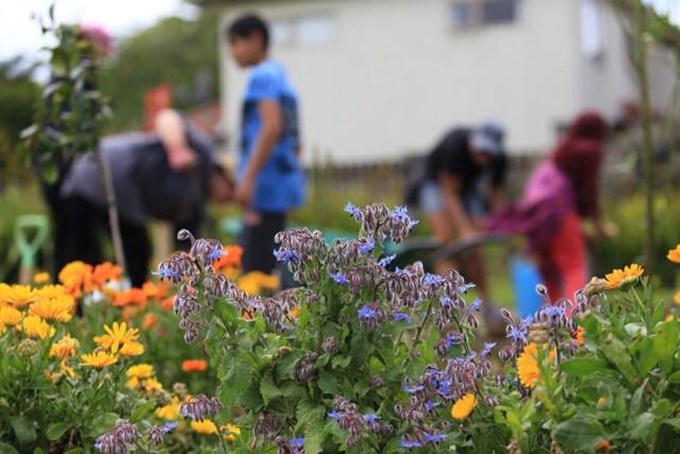When neighbours come together to reduce their environmental impact, something starts to happen.
A sustainability initiative by Albert-Eden Local Board is encouraging communities to form eco-neighbourhoods, groups of six or more neighbours who choose at least two actions to reduce their ecological footprint.
Eco-neighbourhood actions could include:
- installing flow restrictors to save energy and use less hot water
- walking, cycling, using public transport or carpooling rather than driving
- reducing waste by composting organic waste and buying less overall
- growing and eating your own organic food
- saving water by harvesting rain water for your garden
- making and using your own eco-cleaning products.
Along the way, groups share their successes, challenges and learnings with the wider community, online and at local events.
Fruit, neighbours and a thriving community
One successful group is Owairaka Eco-neighbourhood, a community with a goal of sustainability through fruit sharing.
The focus of their project is planting trees on front lawns close to the footpath, where there is no fencing. The fruit is shared with neighbours walking past, giving kids the chance to pick fruit on the way to and from school.
Group coordinator Heather Carolan recognizes the work of the local community in bringing the project together, as well as on-going funding support from Albert-Eden Local Board.
“We’ve had many community working bees. There’s something very heartfelt and satisfying about communities and schools coming together in creative and sustainable ways to address what is lacking.”
Moving to a sustainable future
Going forward, the Owairaka Eco-neighbourhood aims to plant citrus and avocado groves in Owairaka Park while continuing to plant fruit trees around their streets.
“We want a community that is rich in natural food resources, one that offers freely available produce for people to enjoy, and we want to continue the New Zealand tradition of sharing within neighbourhoods."
"Before the surge in housing in the 1940s, this area of Owairaka used to be a fruit tree orchard. We want to see a little bit of that history brought back, but this time it's not for profit, just for the good of our community," says Heather.
“I’ve discovered that there are fruits people either can't afford, such as avocados, or they haven't had a chance to try. We want to ensure we plant produce that really benefits people's health and enjoyment.”
Find out more
To join an eco-neighbourhood or start your own, contact Jennifer Kerr by email econeighbourhoods@gmail.com or phone 09 957 0117 or 021 070 7601.
Every eco-neighbourhood receives some facilitation and financial support to help them to achieve their actions.


